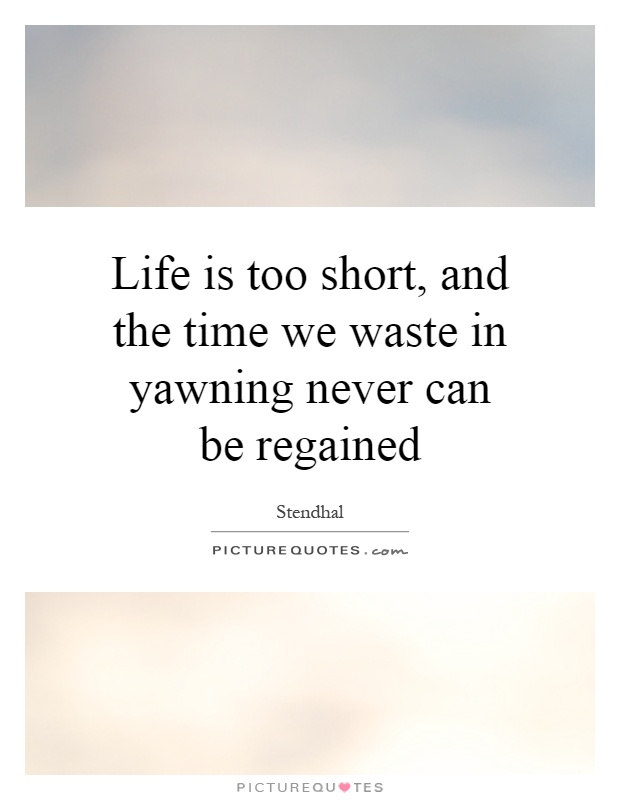Life is too short, and the time we waste in yawning never can be regained

Life is too short, and the time we waste in yawning never can be regained
In the context of Stendhal, the quote "Life is too short, and the time we waste in yawning never can be regained" takes on a profound meaning that resonates with the themes of passion, love, and the fleeting nature of time that are prevalent in his works. Stendhal, whose real name was Marie-Henri Beyle, was a French writer known for his insightful observations on human emotions and relationships. His novels, such as "The Red and the Black" and "The Charterhouse of Parma," often explore the complexities of love and desire, as well as the consequences of missed opportunities and wasted time.Stendhal believed that life was too short to be spent in a state of apathy or boredom. He saw yawning as a symbol of indifference and passivity, a sign that one is not fully engaged with the world around them. In his view, to waste time in yawning was to squander the precious moments that could be spent pursuing one's passions and desires. Stendhal was a firm believer in the power of passion to give meaning to life, and he often portrayed characters who were driven by their intense emotions and desires.
For Stendhal, the idea that time lost in yawning could never be regained was a reminder of the impermanence of life and the importance of seizing the moment. He believed that one should live life to the fullest, embracing their desires and pursuing their dreams without hesitation. In his novels, characters who are able to overcome their fears and insecurities and follow their hearts are often rewarded with fulfillment and happiness, while those who hesitate or hold back are left with regret and missed opportunities.












 Friendship Quotes
Friendship Quotes Love Quotes
Love Quotes Life Quotes
Life Quotes Funny Quotes
Funny Quotes Motivational Quotes
Motivational Quotes Inspirational Quotes
Inspirational Quotes